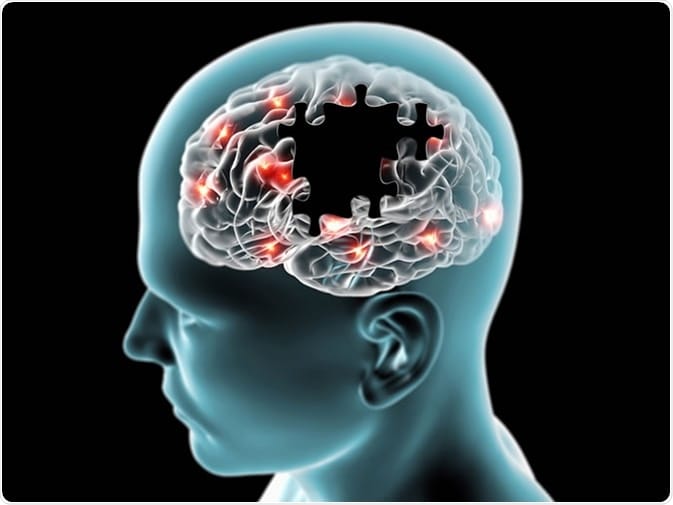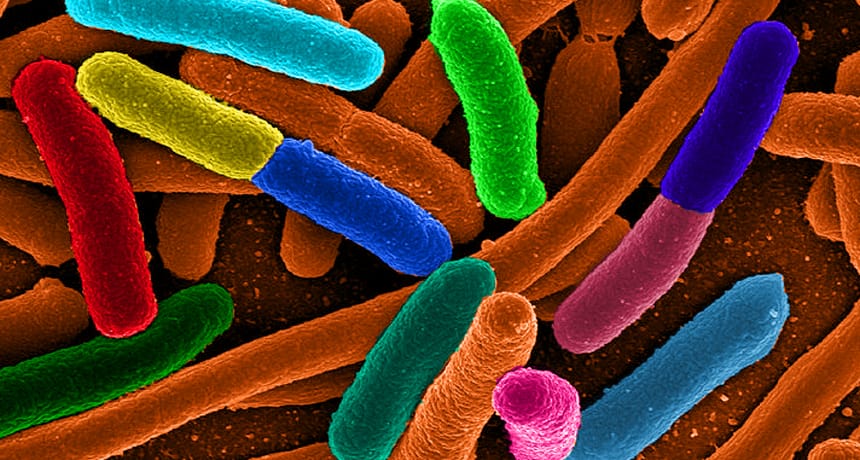We live in a world that often glorifies speed, competition, and achievement. Yet beneath the constant rush of modern life, there exists a simple, profound force that has shaped human survival and well-being for millennia: kindness. At first glance, kindness might seem soft, sentimental, even trivial compared to the hard sciences of medicine or genetics. But when you look closely—through the lens of biology, psychology, and neuroscience—kindness reveals itself as one of the most powerful drivers of human health.
Kindness is not merely a moral virtue or an act of courtesy. It is a biological imperative, woven into our DNA through millions of years of evolution. From strengthening the immune system to lowering stress, from improving heart health to extending longevity, kindness has profound effects on both body and mind. Acts of generosity and compassion ripple outward, touching communities and returning to the giver in ways that science is only beginning to fully understand.
This article explores the deep and fascinating connection between kindness and better health, drawing on scientific evidence, emotional truths, and the timeless human need for connection.
Evolutionary Roots of Kindness
To understand why kindness affects health, we must look back to our evolutionary origins. Humans are social animals, and survival has always depended on cooperation. Our ancestors did not endure ice ages or predators alone; they thrived by forming bonds, sharing resources, and protecting one another. Kindness, therefore, is not an optional trait—it is a survival strategy.
When one individual shared food with another, the group grew stronger. When someone cared for the sick, the community preserved valuable members. These behaviors were reinforced by natural selection, as groups that practiced kindness and cooperation had higher chances of survival than those driven purely by competition.
Over time, kindness became embedded not only in human culture but also in human biology. Our brains reward acts of compassion with feel-good chemicals like dopamine and oxytocin. These neurochemical reinforcements ensured that kindness was not only beneficial for survival but also deeply satisfying on a personal level.
The Neuroscience of Kindness
Modern neuroscience has illuminated how kindness literally changes the brain. When people engage in acts of generosity—whether giving to charity, volunteering, or simply offering a helping hand—regions of the brain associated with reward and pleasure become active.
Oxytocin, often called the “love hormone,” plays a central role. This chemical is released during social bonding, such as hugging, breastfeeding, or even making eye contact. Remarkably, oxytocin is also released during acts of kindness, whether giving or receiving. It reduces stress by lowering cortisol levels, promotes feelings of trust and connection, and even improves cardiovascular health by dilating blood vessels and lowering blood pressure.
Dopamine, another brain chemical, contributes to what scientists call the “helper’s high”—a burst of euphoria experienced after doing something good for others. Endorphins, natural painkillers, are also released, creating a sense of warmth and calm. The brain, in short, is designed to reward kindness, reinforcing it as a habit that benefits both the giver and the receiver.
Kindness and Stress Reduction
Stress is one of the greatest threats to modern health, linked to heart disease, weakened immunity, anxiety, depression, and countless other ailments. Acts of kindness have been shown to reduce stress levels in measurable ways.
When we experience chronic stress, the body floods with cortisol and adrenaline, preparing us for fight or flight. Over time, these hormones damage tissues, suppress immunity, and strain the cardiovascular system. But when kindness triggers the release of oxytocin, cortisol levels drop. This physiological shift not only calms the mind but also protects the body from the toxic effects of long-term stress.
Studies have found that people who engage in regular volunteering or daily small acts of kindness report lower levels of stress and anxiety. Remarkably, even witnessing acts of kindness—something as simple as watching a stranger help another—can reduce stress hormones in observers.
The Cardiovascular Benefits of Kindness
The heart is not only a muscle that pumps blood but also a sensitive organ profoundly affected by emotions. Positive emotions such as compassion, gratitude, and love promote cardiovascular health, while chronic anger, hostility, or loneliness damage it.
Oxytocin released during kindness lowers blood pressure, earning it the nickname “cardioprotective hormone.” Acts of kindness also stimulate the vagus nerve, which regulates heart rate and contributes to a state of calm and resilience. People who engage in regular kind behaviors have been found to have healthier heart rhythms, lower blood pressure, and reduced risk of heart disease.
For patients recovering from heart-related illness, social support—an extended form of kindness—predicts faster recovery and greater survival rates. The old saying “a kind heart is a healthy heart” is more scientifically accurate than once believed.
Immune System and Healing
The immune system, our body’s defense against disease, is deeply influenced by psychological and social factors. Stress weakens immunity, but kindness strengthens it. Research shows that people who experience high levels of positive social interactions produce more antibodies, recover more quickly from illness, and respond better to vaccines.
Kindness, through its stress-reducing and oxytocin-boosting effects, helps regulate immune function. Studies of people engaged in compassionate meditation—a practice of cultivating kindness toward others—reveal increased activity in genes linked to immunity and decreased activity in genes associated with inflammation. Since chronic inflammation is tied to conditions such as cancer, diabetes, and Alzheimer’s disease, the implications are profound.
Moreover, patients in hospitals who receive kindness—from doctors, nurses, family, or even strangers—report less pain, recover faster, and experience greater well-being. Healing is not only about medicine but also about the environment of care and compassion.
Mental Health and Emotional Resilience
Perhaps the most immediate and visible benefits of kindness are seen in mental health. Depression, anxiety, and loneliness are among the most pervasive health challenges of our time. Acts of kindness provide powerful antidotes.
When individuals practice kindness, whether through volunteering or simple daily gestures, they report higher levels of life satisfaction and happiness. The neurochemical cocktail of oxytocin, dopamine, and endorphins combats depression and anxiety by creating a sense of meaning, connection, and self-worth.
Importantly, kindness fosters resilience. Life inevitably brings loss, hardship, and stress. People who cultivate kindness are better able to cope with adversity, in part because they are more likely to have strong social networks built on mutual care. Giving to others creates bonds, and these bonds provide a safety net during times of personal crisis.
Longevity and Quality of Life
Does kindness help us live longer? Growing evidence suggests it does. Longitudinal studies show that people with strong social ties and a habit of generosity live longer than those who are socially isolated or self-focused. The benefits are not only about quantity of years but also quality.
Elderly individuals who volunteer regularly have lower rates of depression, better physical health, and reduced risk of mortality. The act of contributing to others creates a sense of purpose, which is itself linked to longevity. In one study, older adults who provided support to friends, relatives, or neighbors had a significantly lower risk of dying over a five-year period than those who did not.
Kindness, in essence, keeps us young—not just in spirit but in cellular and systemic health. By reducing stress, strengthening immunity, and fostering social bonds, it supports healthy aging and vitality.
Kindness in Relationships
Relationships are the cornerstone of human health. From infancy to old age, our well-being depends on the bonds we form with others. Kindness is the glue that holds relationships together.
Couples who practice kindness—expressing appreciation, offering support, forgiving mistakes—report higher levels of satisfaction and longevity in their relationships. Children who grow up in environments of kindness develop stronger emotional regulation, empathy, and resilience. Friendships thrive when kindness is present, providing emotional and practical support that sustains health during difficult times.
On a broader scale, communities infused with kindness are healthier communities. Neighborhoods where people trust and help one another have lower crime rates, better mental health outcomes, and stronger social cohesion. Kindness spreads, creating positive feedback loops that enhance collective well-being.
The Science of Witnessing Kindness
One of the most fascinating findings in recent years is that kindness benefits not only the giver and receiver but also the observer. Witnessing acts of kindness triggers what psychologists call “moral elevation”—a warm, uplifting feeling that inspires us to act more kindly ourselves.
Brain imaging studies reveal that observing kindness activates the same reward circuits as experiencing kindness directly. This contagious quality means that kindness can spread through social networks, improving the health and happiness of entire groups. In workplaces, schools, and families, the simple act of witnessing generosity can inspire ripple effects that transform environments.
Cultivating Kindness in Daily Life
If kindness is so beneficial, the question becomes: how can we cultivate it more deliberately? Science suggests that kindness, like a muscle, strengthens with practice. Daily habits such as expressing gratitude, offering compliments, volunteering, or engaging in compassionate meditation increase not only kind behavior but also its health benefits.
Importantly, kindness must be authentic. Forced or insincere kindness does not produce the same physiological and psychological rewards. Genuine care and empathy are what drive the beneficial effects, reinforcing the human capacity for connection.
Barriers to Kindness in Modern Life
Despite its profound benefits, kindness often feels in short supply. Modern life, with its emphasis on competition, productivity, and digital interaction, can create barriers to compassion. Stress, time pressures, and social divisions all reduce opportunities for kindness.
Yet, even in this environment, small acts matter. A smile, a listening ear, or a thoughtful message can cut through alienation and restore connection. Technology, while sometimes isolating, can also be a tool for kindness—allowing people to share support, raise funds for causes, or maintain relationships across distances.
The challenge is not whether humans are capable of kindness, but whether we create the conditions to nurture it.
Kindness as Public Health
If kindness has such far-reaching effects, should it be considered a public health strategy? Increasingly, researchers and policymakers argue yes. Programs that encourage volunteering, community service, and social support not only foster compassion but also reduce healthcare costs by improving overall well-being.
Hospitals that train staff in compassionate care report better patient outcomes. Schools that teach empathy and kindness see reductions in bullying and improvements in student well-being. Workplaces that prioritize kindness have lower employee burnout and higher productivity.
By embedding kindness into the structures of society, we can improve both individual and collective health.
Conclusion: A Prescription for Health
The link between kindness and better health is not a sentimental idea but a scientific reality. Kindness lowers stress, strengthens the heart, boosts the immune system, enhances mental health, fosters resilience, and extends life. It is both the medicine and the cure, available to everyone, at no cost, without side effects.
In a world searching for solutions to chronic illness, social disconnection, and mental health crises, kindness offers a timeless prescription. Every act of compassion, no matter how small, contributes to a healthier self and a healthier society.
To be kind is not only to be good but also to be well. Kindness is a gift that returns to the giver, a force that transforms biology into joy, and a reminder that health is not only about the body but also about the bonds that make life meaningful.






